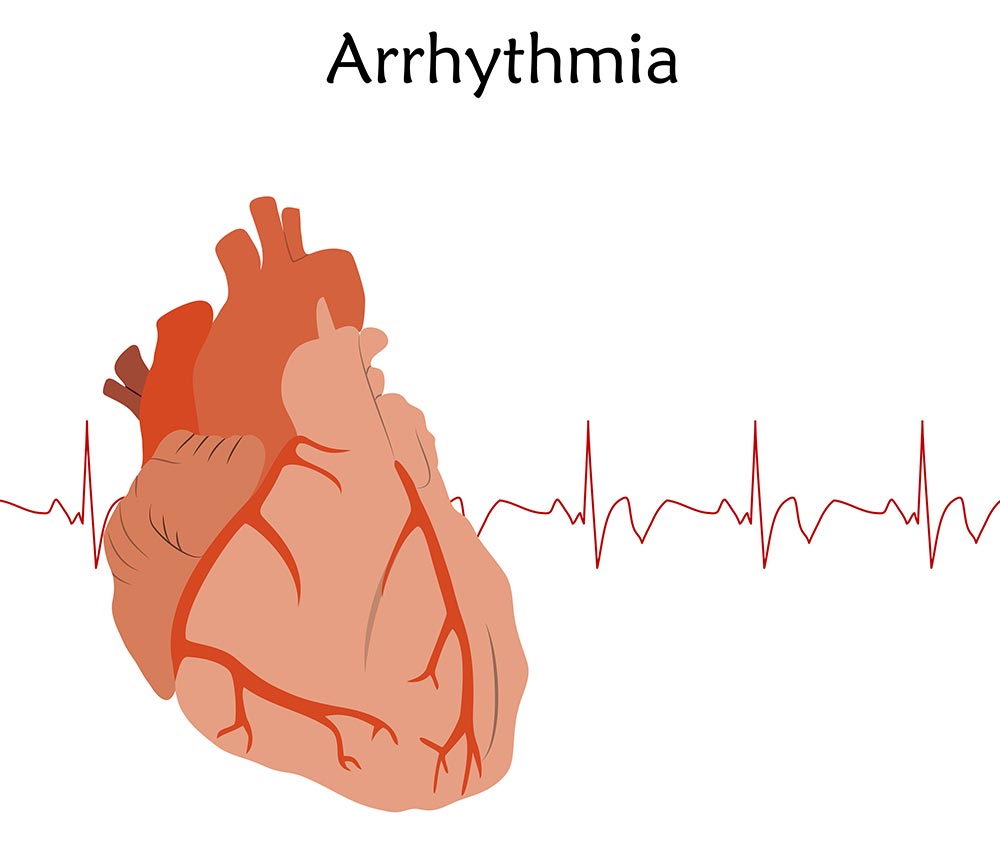Arrhythmia is a term used to describe any changes in the normal heart rhythm. It can be caused by a variety of factors, including abnormalities in the heart's structure, problems with the heart's electrical conduction system, or certain medications. Some types of arrhythmia are harmless, while others can be serious and even life-threatening. Treatment options depend on the type of arrhythmia and its severity. In some cases, no treatment is necessary, while in others, medications or procedures such as ablation or a pacemaker may be necessary. If you are concerned that you or a loved one may have an arrhythmia, it is important to speak with a healthcare provider for proper evaluation and treatment.

Some common tests include:
If you are experiencing any symptoms of arrhythmia, such as palpitations, chest pain, shortness of breath, dizziness, fainting, weakness, or fatigue, it is important to speak with a healthcare provider for proper evaluation and treatment. Some types of arrhythmia can be serious and even life-threatening, so it is important to get proper medical attention.
The seriousness of a heart arrhythmia can vary widely depending on the type of arrhythmia and its severity. Some types of arrhythmia are harmless and do not cause any symptoms or complications, while others can be serious and even life-threatening.
Anxiety can sometimes trigger arrhythmia. Emotional stress or anxiety can cause the heart to beat faster or irregularly, leading to arrhythmia. This is known as "supraventricular tachycardia" or "SVT." SVT is a type of arrhythmia that originates in the upper chambers of the heart (the atria) and is characterised by rapid heartbeats.
Though arrhythmia is a long-term condition, you may continue to lead a long and active life when managed properly. This can help to manage your condition, lessen the risk of stroke and relieve any worries you might have.
Visit a doctor when you are suffering from heart problems!